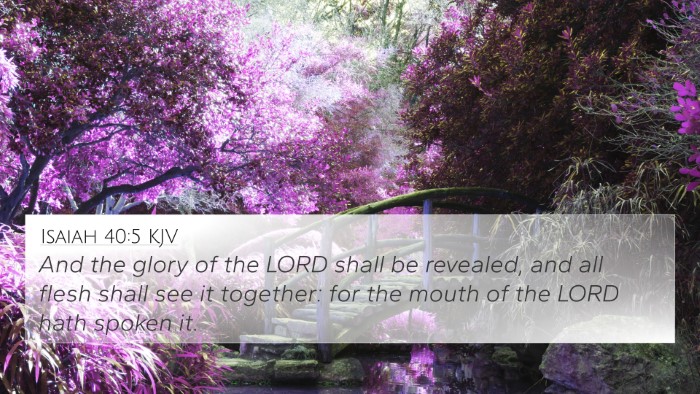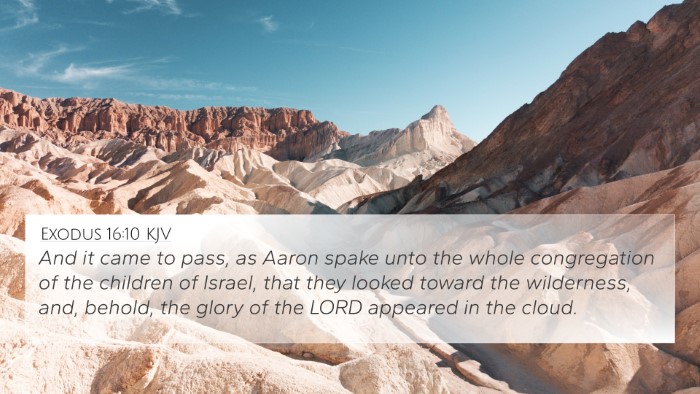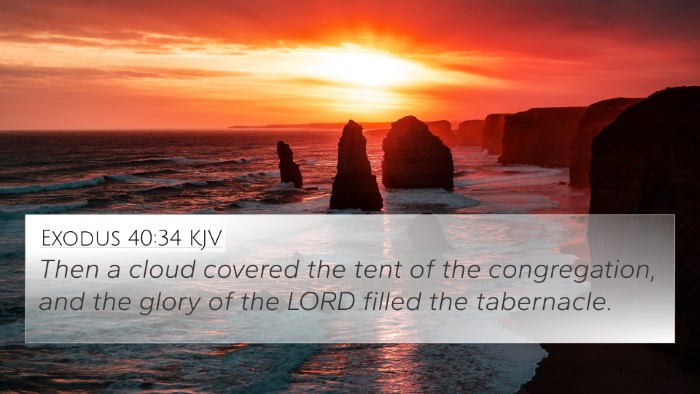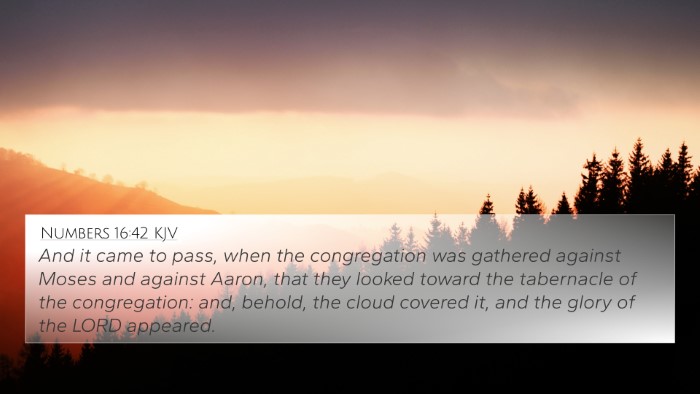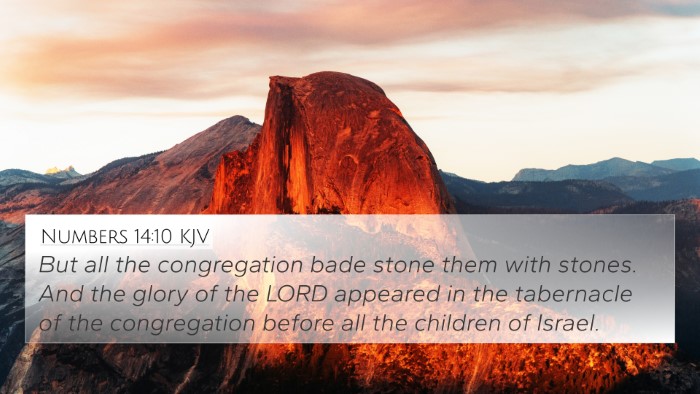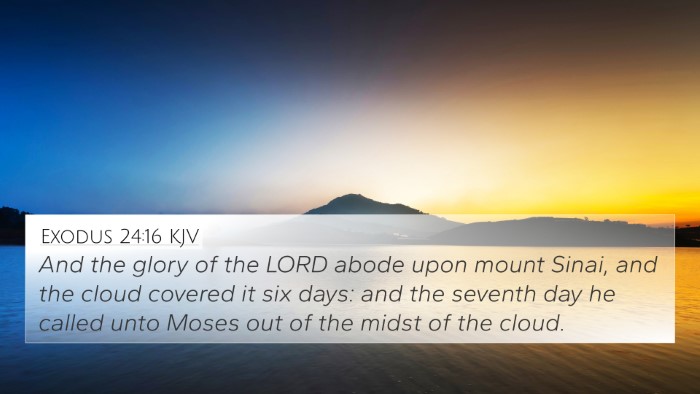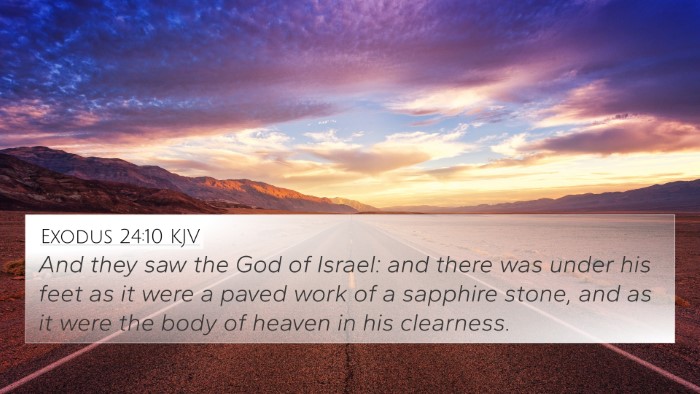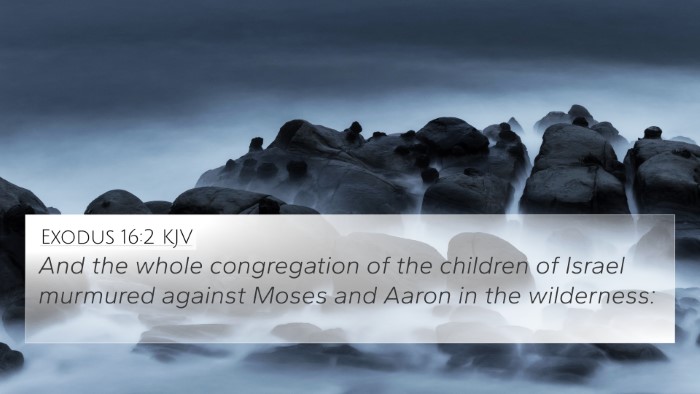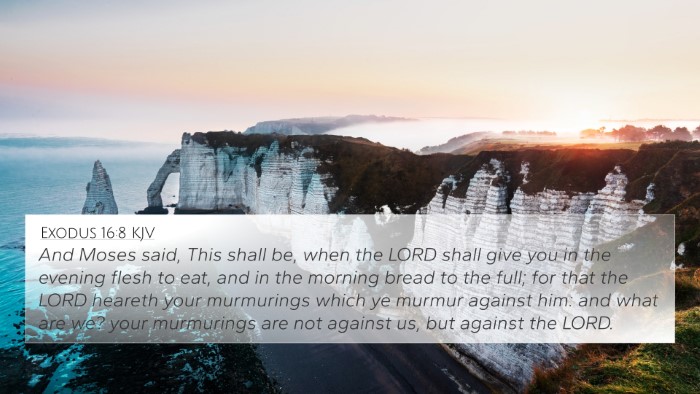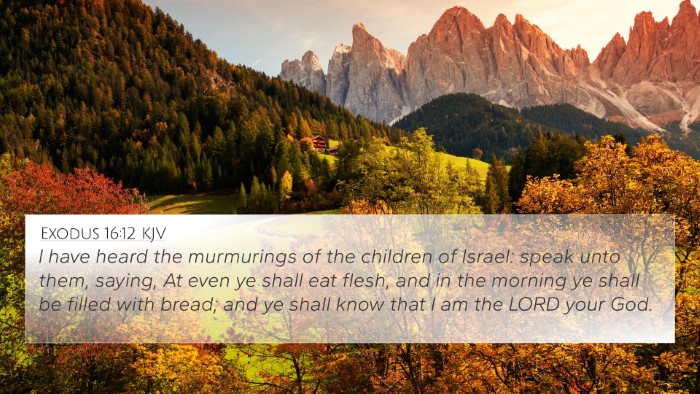Understanding Exodus 16:7
Exodus 16:7 states: "And in the morning, then you shall see the glory of the LORD; for that he hears your murmurings against the LORD: and what are we, that ye murmur against us?" This verse captures a moment of divine revelation amidst Israel's trials in the wilderness, highlighting themes of faith, dependence on God, and the consequences of complaining against Him.
Context of the Verse
The context of Exodus 16 is essential for understanding its significance. After the Israelites left Egypt, they found themselves in a desolate region, facing hunger and uncertainty. Their complaints to Moses and Aaron reflect a lack of trust in God’s provision, prompting a direct response from God regarding His intent to provide for them.
Insights from Commentaries
Various biblical commentaries provide deeper insight into the meaning of this verse:
- Matthew Henry: Henry emphasizes the fact that God’s response to the complaints of the Israelites demonstrates His compassion and readiness to provide for His people. He asserts that seeing God’s glory is both a promise of revelation and a call to faith.
- Albert Barnes: Barnes points out that the mention of seeing "the glory of the LORD" suggests an impending miraculous provision. He notes that the glory signifies God’s benevolence and intervention amidst human failures and shortcomings.
- Adam Clarke: Clarke elaborates on the significance of Israel's murmuring, suggesting that their complaints were not merely against the leaders but against God Himself. He stresses the seriousness of this sin and points to God’s gracious invitation to witness His providence.
Thematic Connections in the Bible
This verse serves as a nexus for various themes and connections found throughout the Bible:
- Divine Provision: The theme of God providing for His people can be linked to other passages such as Philippians 4:19, where Paul affirms God’s provision for all needs through Christ.
- God’s Glory: The concept of witnessing God’s glory is echoed in John 1:14, where the Word became flesh and His glory was revealed.
- Murmuring and Faith: This concept is further explored in 1 Corinthians 10:10, which warns against the same spirit of discontent that plagued the Israelites.
- God’s Compassion: The merciful nature of God, despite the complaints, reflects God’s loving attitude as seen in Psalms 103:13-14.
- Human Dependence: The idea of relying on God’s sustenance resonates with Matthew 6:11, where Jesus teaches to pray for daily bread.
- Covenantal Faithfulness: God’s provision in the wilderness reflects His covenant loyalty, a theme present in Deuteronomy 8:3, reminding the Israelites of their dependence on God’s word.
- Testing and Trials: The wilderness experience is akin to the testing in James 1:2-4, indicating how trials develop perseverance and maturity in faith.
Cross-Referencing Biblical Texts
To fully grasp the significance of Exodus 16:7, cross-referencing other Bible verses offers rich insights:
- Exodus 16:4 - The instruction for manna is a precursor to the glory revealed. God promises provision even in their murmurings.
- Numbers 11:1 - Retrospective accounts of Israel's complaints highlight the consistent struggle with trust and faith in God’s plans.
- Psalms 78:19 - Reflects on the Israelites’ questioning of God's ability to provide water in the desert.
- Isaiah 40:29 - Affirms God’s ability to give strength to the weary and renew those who lack faith.
- Philippians 2:14-15 - Encourages believers to avoid complaining, tying back to the Spirit of gratitude expected from God’s people.
- Hebrews 3:7-19 - This New Testament reflection encourages believers to heed God’s voice and not harden their hearts just as the Israelites did.
- Revelation 7:17 - Presents the Lamb providing for the people of God, underscoring eternal provisions linked to the initial act of divine care portrayed in Exodus.
Conclusion and Reflection
In conclusion, Exodus 16:7 encapsulates critical lessons about God’s provision, the dangers of complaint, and the response expected from His people. Through various biblical connections and cross-references, we learn of God’s enduring faithfulness and the importance of maintaining faith, especially during trials. The complexity of scripture encourages us to continuously explore inter-Biblical dialogues that deepen our understanding and reliance on God's word.
Further Study Tools
For those desiring to engage in bible cross-referencing, the following tools and methods are invaluable:
- Bible Concordance: A tool that lists words and phrases, allowing for deep exploration into verses and themes.
- Bible Cross-Reference Guide: Guides that assist in identifying related verses, enhancing thematic Bible studies.
- Bible Chain References: Systems used to follow themes or topics throughout the Bible, linking verses together.
- Cross-References for Sermon Preparation: Valuable for connecting passages and enriching sermons with related scriptures.
Understanding Exodus 16:7 in the light of cross-referencing not only compels us to examine ourselves but also draws us closer to the comprehensive love and provision of God.



